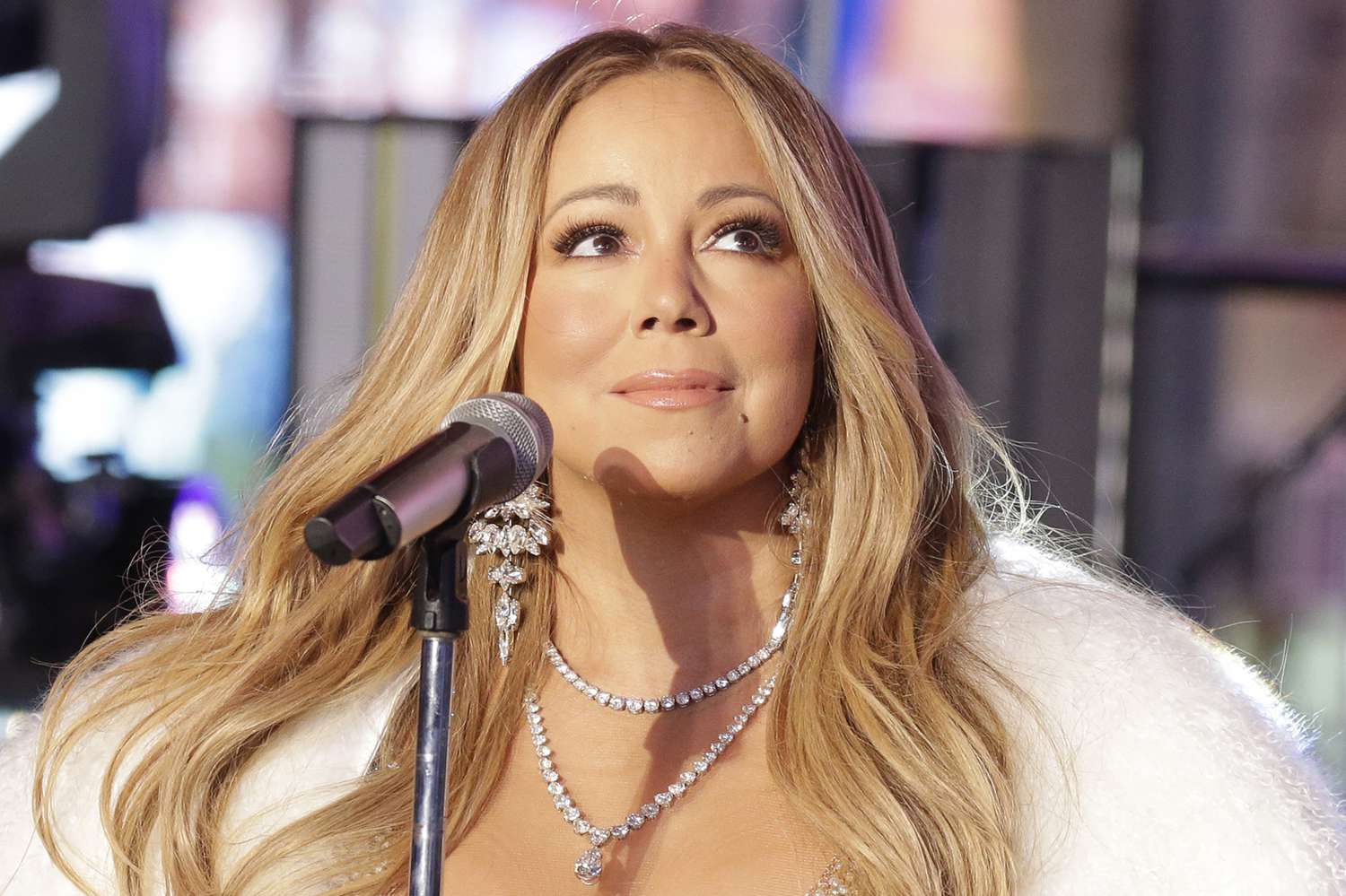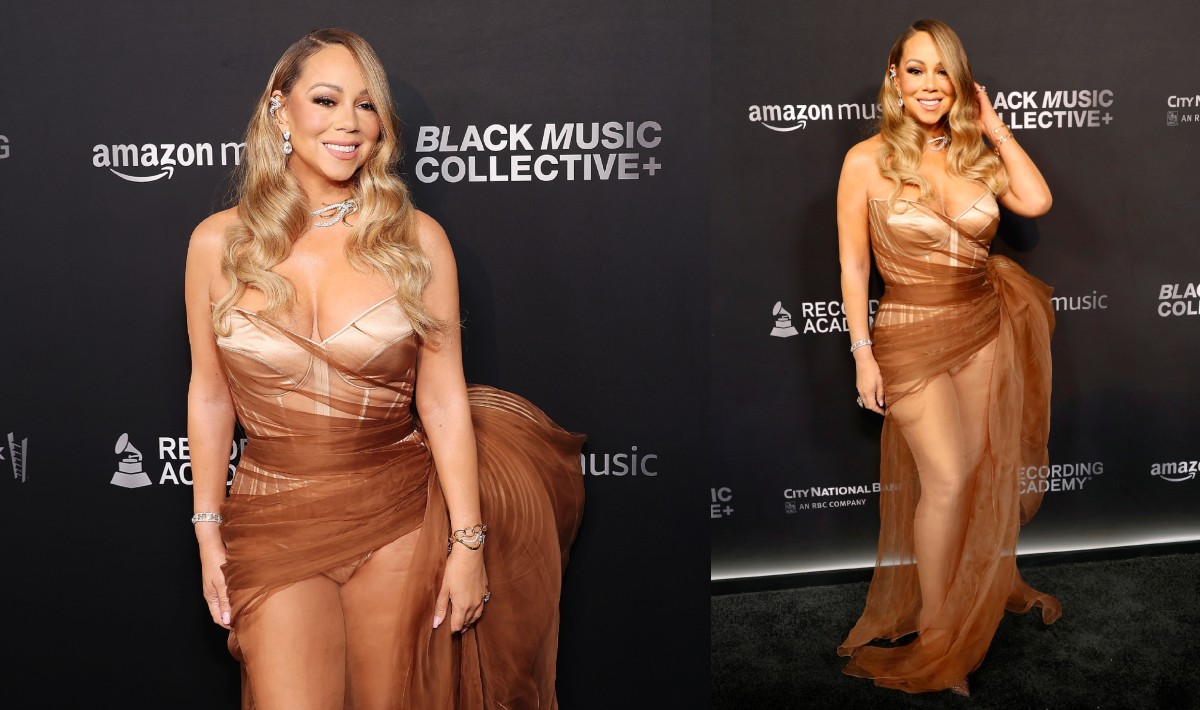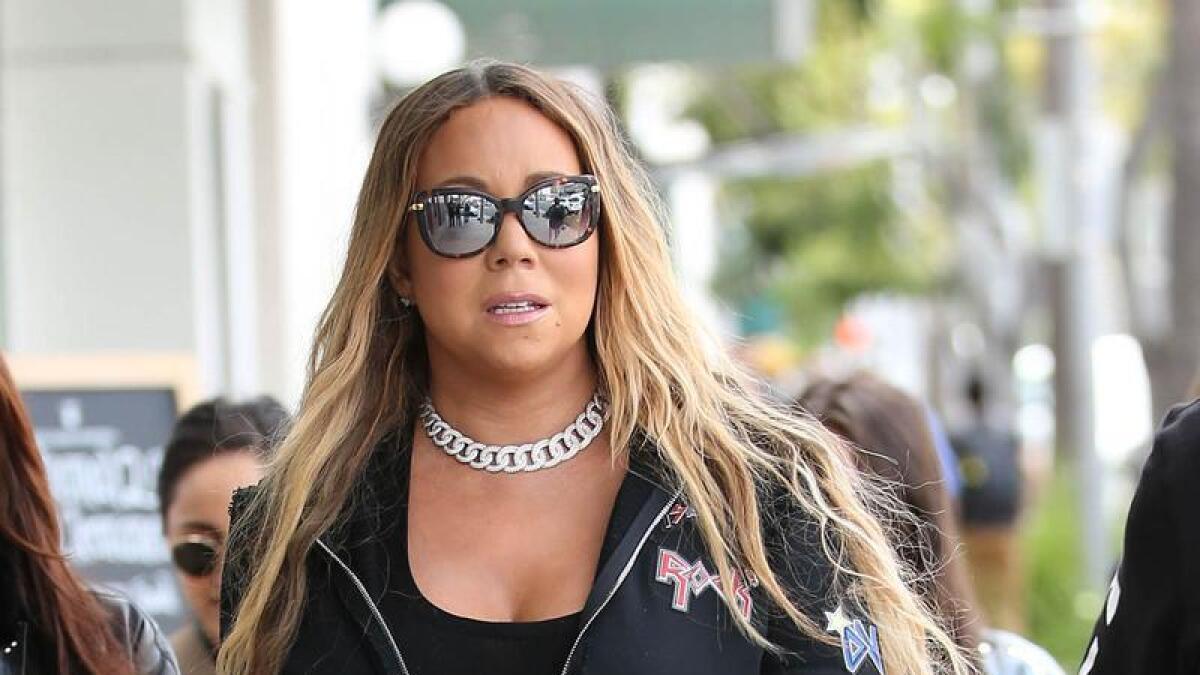Mariah Carey, born on March 27, 1969, in Huntington, New York, is a name synonymous with the heights of pop music success. A five-time Grammy Award winner, Carey’s voice, with its unparalleled range and emotive power, has touched millions across the globe. Her journey from a young girl with a dream to one of the best-selling music artists of all time is a testament to her talent, resilience, and the transformative power of music. Over the years, Mariah Carey has become more than just a singer; she is an icon, influencing generations of artists and leaving an indelible mark on the music industry. Yet, behind the glittering surface of her public persona lies a story of personal struggles, complex family dynamics, and the painful realities of loss.
The significance of Mariah Carey’s career cannot be overstated. With 19 number-one singles on the Billboard Hot 100, a record-setting five-octave vocal range, and more than 200 million records sold worldwide, she has firmly established herself as one of the most successful artists in history. Known for her Christmas anthem, “All I Want for Christmas Is You,” and other timeless hits like “Hero” and “We Belong Together,” Carey’s music transcends generations. However, her life has not been without its challenges, both personal and professional. In this comprehensive exploration, we delve into the life and legacy of Mariah Carey, examining the forces that shaped her, the peaks and valleys of her career, her relationships, the tragic losses that have marked her journey, and the circumstances surrounding the deaths of her mother and sister, which shook her to the core.

Early Life and Background
Mariah Carey’s roots are deeply embedded in a multicultural and musically inclined family. She was born to Patricia Hickey, an Irish-American opera singer and vocal coach, and Alfred Roy Carey, an African-American and Afro-Venezuelan engineer. The mix of her parents’ diverse backgrounds played a significant role in shaping Mariah’s identity and outlook on life. Growing up in a predominantly white neighbourhood, Mariah faced racial discrimination, an experience that she later described as deeply painful and isolating. This early exposure to prejudice and marginalization would later influence her music and her advocacy for inclusivity and diversity.
From a young age, Mariah exhibited a remarkable affinity for music. Her mother, Patricia, recognized her daughter’s potential and nurtured her budding talent. It was not uncommon for Mariah to be found sitting at the piano, trying to replicate the notes she heard her mother sing. This early musical environment was critical in developing Mariah’s voice, which would later become her most defining feature. Despite the encouragement from her mother, Mariah’s childhood was far from idyllic. Her parents’ marriage was fraught with tension and conflict, largely stemming from racial and cultural differences, which eventually led to their divorce when Mariah was just three years old.
The divorce had a profound impact on young Mariah, who found herself moving between her parents’ homes. The instability and emotional turmoil of her early years contributed to her feeling like an outsider, a theme that would recur throughout her life and career. Despite these challenges, Mariah remained focused on her passion for music. She began writing songs in her teens and, after graduating from Harborfields High School in Greenlawn, New York, she moved to New York City to pursue a music career. It was a bold move for a young girl with no industry connections, but Mariah was determined to make her dreams come true.
Mariah’s determination paid off when, at just 18 years old, she met Tommy Mottola, the head of Columbia Records, at a party. Mottola was immediately impressed by Mariah’s demo tape, and within days, she was signed to Columbia. This marked the beginning of Mariah Carey’s meteoric rise to fame, but it also set the stage for the complex and often troubled personal life that would unfold in the years to come.

The Rise to Stardom: Career Milestones and Achievements
Mariah Carey’s career took off like a rocket when her self-titled debut album was released in 1990. The album, which featured hit singles like “Vision of Love,” “Love Takes Time,” and “Someday,” catapulted her to instant stardom. “Vision of Love” became an anthem of the early 90s, showcasing Mariah’s incredible vocal range and emotional depth. The album not only went multi-platinum but also earned Mariah her first Grammy Awards for Best New Artist and Best Female Pop Vocal Performance. It was a spectacular debut that set the tone for a career filled with chart-topping successes.
Following the success of her debut, Mariah Carey continued to dominate the music charts throughout the 1990s. Her follow-up albums, “Emotions” (1991), “Music Box” (1993), and “Daydream” (1995), solidified her status as a pop icon. Each album spawned multiple number-one hits, including “Emotions,” “Dreamlover,” “Hero,” and “Fantasy.” The latter became the first song by a female artist to debut at number one on the Billboard Hot 100, a feat that underscored Mariah’s growing influence in the music industry. The success of “Music Box,” which remains one of the best-selling albums of all time with over 28 million copies sold worldwide, established Mariah Carey as a global superstar.
In addition to her vocal prowess, Mariah Carey was also recognized for her songwriting skills. Unlike many pop artists of the time, Carey co-wrote most of her songs, which allowed her to infuse her music with personal experiences and emotions. This authenticity resonated with fans and contributed to her lasting appeal. Songs like “Hero” and “One Sweet Day,” a duet with Boyz II Men that held the record for the longest-running number-one single on the Billboard Hot 100 for 16 weeks, are a testament to her ability to connect with audiences on a deeply emotional level.
The late 1990s saw Mariah Carey exploring new musical directions. Her 1997 album “Butterfly” marked a significant shift in her sound, incorporating elements of hip-hop and R&B. This was a departure from the more traditional pop ballads that had characterized her earlier work, and it reflected her desire to evolve as an artist. The album was both a critical and commercial success, with singles like “Honey” and “My All” continuing her streak of chart-toppers. “Butterfly” is often cited as Mariah’s most personal album, with lyrics that alluded to her desire for freedom and independence, both professionally and personally.
However, the pressures of fame and the demands of her career began to take a toll on Mariah Carey in the late 1990s and early 2000s. After parting ways with Tommy Mottola, whom she had married in 1993 and divorced in 1998, Mariah faced increased scrutiny from the media and public. Her 2001 album “Glitter,” which was also the soundtrack to her semi-autobiographical film of the same name, was a commercial failure and critically panned. The accompanying film was widely considered a flop, and Mariah’s public image suffered as a result. This period marked a low point in her career, with Mariah also experiencing personal struggles, including a highly publicized breakdown.
Despite the setbacks, Mariah Carey made a remarkable comeback in 2005 with the release of “The Emancipation of Mimi.” The album was a massive success, producing the hit single “We Belong Together,” which spent 14 weeks at number one on the Billboard Hot 100. The album’s success revitalized Mariah’s career, earning her three Grammy Awards and reaffirming her status as one of the most successful artists in the music industry. “The Emancipation of Mimi” is widely regarded as one of the greatest comeback albums in pop music history, showcasing Mariah’s resilience and enduring appeal.
Mariah Carey’s subsequent albums, including “E=MC²” (2008) and “Memoirs of an Imperfect Angel” (2009), continued to perform well, though none matched the commercial success of her earlier work. Nevertheless, Mariah remained a dominant force in the music industry, with her influence extending beyond her own recordings. She became a judge on “American Idol” in 2013, further cementing her role as a mentor and influencer in the world of music. Her annual Christmas concerts and the enduring popularity of “All I Want for Christmas Is You” also ensured that she remained a relevant and beloved figure in pop culture.

Personal Life: Relationships, Marriages, and Challenges
Mariah Carey’s personal life has been as much in the spotlight as her career, often marked by public relationships, high-profile marriages, and personal challenges. Her marriage to Tommy Mottola in 1993, when she was just 23 years old, was one of the most talked-about aspects of her early career. Mottola, who was 20 years her senior, played a pivotal role in Mariah’s early success, but their relationship was also fraught with tension and control issues. Mariah has described the marriage as stifling, likening Mottola to a prison warden. The marriage ended in divorce in 1998, with Mariah later revealing that it was a difficult and painful period in her life.
Following her divorce from Mottola, Mariah Carey’s romantic life continued to attract media attention. She was linked to several high-profile figures, including singer Luis Miguel, with whom she had a three-year relationship, and rapper Eminem, though the latter’s relationship with Mariah was never confirmed by her. In 2008, Mariah shocked the world by marrying actor and comedian Nick Cannon after just a few weeks of dating. The couple’s whirlwind romance was the subject of intense media scrutiny, but they appeared genuinely in love and welcomed twins, Monroe and Moroccan, in 2011.
Mariah’s marriage to Nick Cannon was one of the most stable periods in her personal life, but it too ended in divorce in 2016. Mariah and Nick have maintained an amicable relationship despite the split, co-parenting their children and frequently expressing mutual respect and admiration for each other. Mariah has often spoken about the importance of her children in her life, describing them as her greatest achievement and the source of her greatest joy.
Throughout her personal and professional life, Mariah Carey has also faced significant challenges, including struggles with mental health. In 2001, she was hospitalized for what was described as “extreme exhaustion,” which led to widespread speculation about her mental state. In 2018, Mariah publicly revealed that she had been diagnosed with bipolar disorder, a condition she had been battling in private for many years. The revelation was met with widespread support, and Mariah was praised for her courage in speaking out about her mental health struggles. She has since become an advocate for mental health awareness, using her platform to encourage others to seek help and support.
Mariah Carey’s relationship with her family has also been a source of personal turmoil. Her relationship with her mother, Patricia, was often strained, as detailed in Mariah’s 2020 memoir, “The Meaning of Mariah Carey.” Mariah described their relationship as “full of contradictions and competing realities,” marked by a complicated mix of pride, pain, and disappointment. Despite their differences, Mariah and Patricia maintained a relationship, with Mariah often expressing gratitude for the musical foundation her mother provided.
Similarly, Mariah’s relationship with her siblings, Alison and Morgan, has been fraught with difficulties. Alison, who has battled addiction and legal issues, had a particularly troubled relationship with Mariah. In her memoir, Mariah wrote that it was “emotionally and physically safer” for her to keep her distance from Alison and Morgan, who had also publicly criticized Mariah in the past. These family dynamics added another layer of complexity to Mariah’s life, often playing out in the public eye.

The Tragic Losses: The Deaths of Patricia and Alison Carey
In a tragic turn of events, Mariah Carey lost both her mother, Patricia, and her sister, Alison, on the same day. The news, confirmed by Mariah herself in an emotional statement, sent shockwaves through the public and her fanbase. Mariah expressed her heartbreak over the loss, stating, “My heart is broken that I lost my mother this past weekend. Sadly, in a tragic turn of events, my sister lost her life on the same day.” While Mariah did not disclose the causes of their deaths, she requested privacy during this “impossible time,” a clear indication of the profound impact these losses had on her.
The death of Patricia Carey marked the end of a long and complicated relationship between mother and daughter. Despite their ups and downs, Patricia was a significant influence on Mariah’s life and career, instilling in her a love of music and the arts. Patricia’s passing was a deeply personal loss for Mariah, who had spent the last week of her mother’s life by her side. In her statement, Mariah expressed her gratitude for this time, highlighting the bond they shared despite their differences.
The death of Alison Carey, on the other hand, was a more complex and perhaps more painful loss. Alison’s life had been marked by hardship, including struggles with addiction and health issues. Her relationship with Mariah had been strained for many years, with Mariah often distancing herself from her sister due to concerns about her own emotional and physical well-being. Despite these challenges, Alison’s death undoubtedly left a void in Mariah’s life, as it marked the end of any possibility for reconciliation or healing between the sisters.
The simultaneous deaths of Patricia and Alison Carey brought an overwhelming sense of grief and loss to Mariah Carey’s life. The public response to the news was one of shock and sympathy, with fans and fellow artists expressing their condolences and support for Mariah during this difficult time. The circumstances surrounding their deaths remain private, as Mariah has chosen not to disclose further details, opting instead to grieve in private.

Net Worth at the Time of Death and Financial Legacy
At the time of her death, Mariah Carey was one of the wealthiest artists in the music industry, with a net worth estimated at around $320 million. Her financial success was the result of decades of hard work, hit records, and lucrative deals, including endorsements, residencies, and royalties from her extensive catalogue of music. “All I Want for Christmas Is You” alone generates millions of dollars in royalties each year, making it one of the most profitable songs in music history.
Mariah’s financial legacy is a testament to her business acumen and her ability to capitalize on her talent. Over the years, she made strategic investments in real estate, including luxurious properties in New York, Los Angeles, and the Bahamas. These assets, combined with her ongoing music royalties and other business ventures, ensure that Mariah’s estate will continue to generate significant income for years to come.
The management of Mariah Carey’s financial legacy is likely to be handled with the same level of professionalism and care that characterized her career. Given her close relationship with her children, it is expected that Monroe and Moroccan will be the primary beneficiaries of her estate. Additionally, Mariah’s philanthropic efforts, including her support for children’s charities and organizations promoting mental health awareness, may continue to be funded through her estate, ensuring that her legacy extends beyond music.
Reflecting on Mariah Carey’s Legacy
Mariah Carey’s legacy is one of remarkable talent, resilience, and a deep connection with her audience. She is not only celebrated for her extraordinary voice and chart-topping hits but also for her ability to overcome personal and professional challenges. Her influence on the music industry is undeniable, with countless artists citing her as an inspiration. Mariah’s journey from a young girl with a dream to a global superstar is a story of determination and the transformative power of music.

The impact of Mariah Carey’s death on the public and the music industry has been profound. Her passing marked the end of an era, with fans and fellow artists paying tribute to her legacy. In the years to come, Mariah Carey will be remembered not just for her music but for her contributions to the cultural landscape and her advocacy for mental health and diversity.
Mariah Carey’s life and death are a reminder of the complexities of fame and the human experience. Despite her extraordinary success, Mariah faced many of the same challenges as anyone else, including family dynamics, personal struggles, and the pain of loss. Her story is one of triumph and tragedy, a testament to the power of perseverance and the enduring impact of a life lived in the spotlight.
